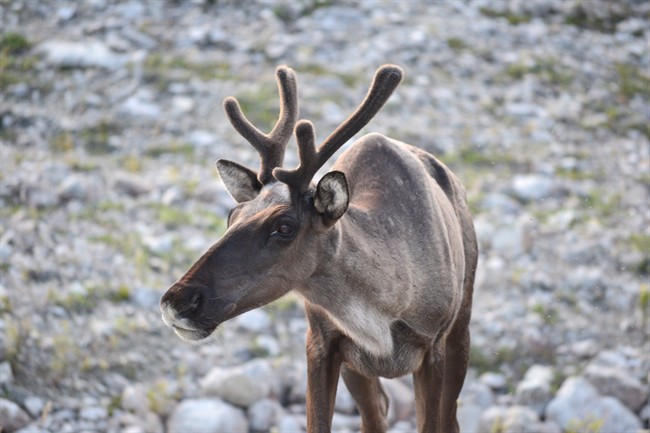B.C.’s government has reached two draft agreements with the aim of protecting the province’s dwindling caribou population.

They could render unnecessary a series of wildlife killing contests undertaken by various Interior hunting clubs that they say are aimed at managing predators such as cougars and wolves.
WATCH: March 10 — Paul Johnson reports on environmentalists calling for an end to wildlife killing contests

One agreement announced on Thursday was reached between B.C. and the federal government and provincial governments to offer temporary protection to the central caribou population in the province while a long-term plan is developed.
The other agreement includes the West Moberly and Saulteau First Nations.
B.C.’s Minister of Forests, Lands, Natural Resources and Rural Development Doug Donaldson said the two draft agreements include tangible measures that are rooted in the “best available science and traditional knowledge.”
The measures include additional protected area, recreational management, predator control, reduction of disturbances and the establishment of a recovery committee with representatives from the federal and provincial governments and First Nations.
Those draft agreements will now go through a consultation period which will ask for public feedback until the end of April. This feedback will help to shape the final long-term plan to protect caribou.
“I can’t emphasize enough that the draft agreements are historic in Canada, and aim to protect an iconic species at risk that we’ve seen drastic population decline,” Donaldson said.

Get daily National news
Some local industries might be affected and the governments will work to ensure that the effects are limited, he added.
WATCH: Sept. 21, 2015 — Miley Cyrus visits B.C. to discuss wolf cull
The agreements minimize the risk of a federal emergency order, which could see caribou habitat being closed off, resulting in billions of dollars in economic losses and affecting jobs, the province said in a technical briefing.
The West Moberly and Saulteau First Nations welcomed the agreement. Chief Ken Cameron of the Saulteau First Nations called it a “powerful moment in history and a turning point for B.C. and Canada and First Nations.”
Central caribou have declined from a population of about 800 animals in the early 2000s to about 220, the provincial government said.
Hunters in central B.C. have cited such data as the reason to hold wildlife killing contests that target wolves and cougars in the region.
At least one scientific study — led by a University of Alberta biologist and released earlier this month — has suggested that culling predators is the only way to save the caribou.
Researchers and hunters have said that environmental destruction has shrunk the caribou’s habitat, forcing the animals to move into predator territory.
Various hunting and gun clubs have gone on to hold these wildlife killing contests, offering points and cash rewards based on the type and number of predators killed over a particular time period.
“Because of the habitat that you have annihilated and because of the extra predators that you are trying to save, it is all adding up to the decimation of numerous species,” a hunter said in a YouTube video posted this month. “Now we are left having to fix this problem ourselves.”
Environmentalists have called on the government to enact a mandatory ban on the contests, arguing that promoting the killing any animal is cruel and inhumane.
Donaldson and the ministry don’t condone the contests, but there’s no law that prohibits them, the minister said earlier this month.
The draft agreements, however, put forth the possibility of predator culls, which would be based on government-mandated population targets.
The previous Liberal government had also promoted the practice of culling wolves and other predators, prompting outcry from environmentalists and international celebrities.
The agreement that includes the First Nations is a step forward, said Tim Burkhart, B.C. program manager of the Yellowstone to Yukon Conservation Initiative.
He warned, however, that governments need to stop negotiating and start acting fast to save what’s left of the species.
“While they’re talking and negotiating, caribou are disappearing,” he said, adding the agreements also need to be developed further to achieve true change.
With files from the Canadian Press





Comments